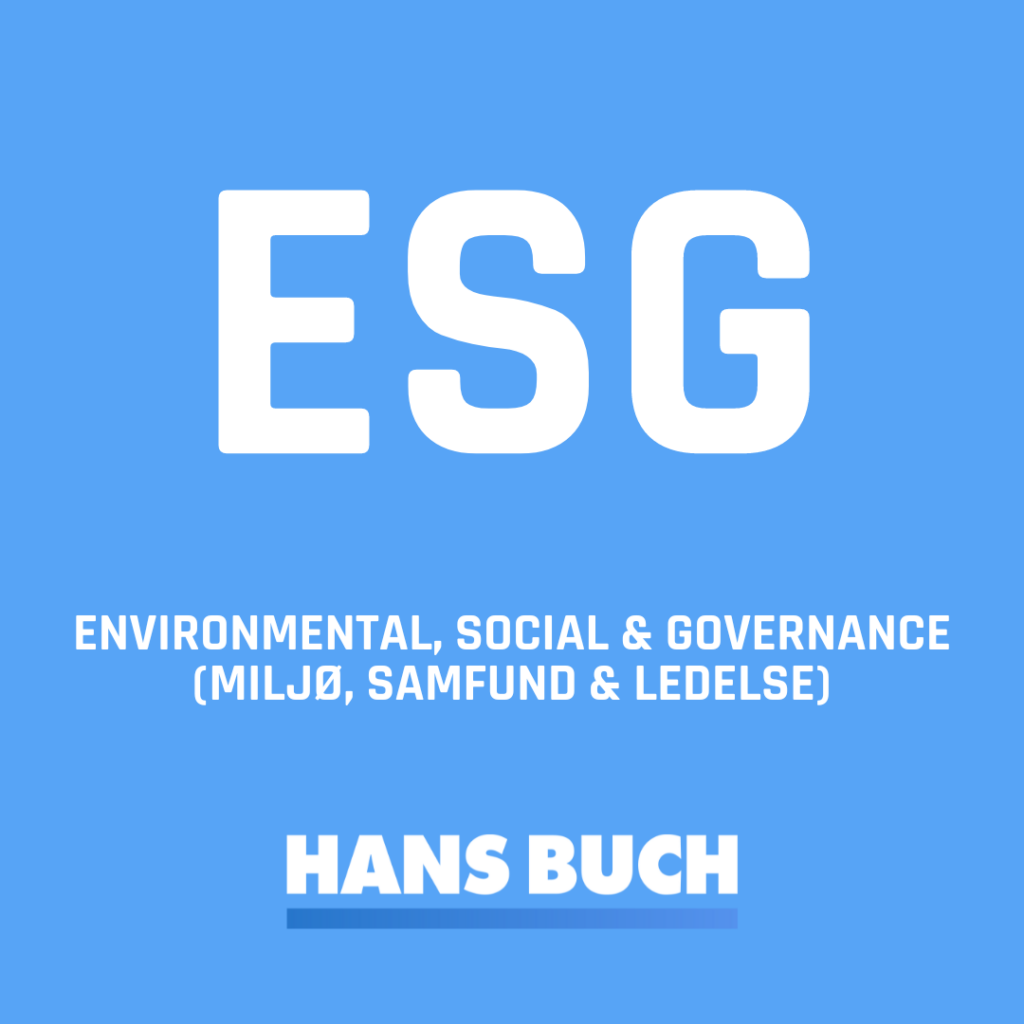What is an ESG?
ESG stands for Environmental, Social and Governance and can be translated into Danish as environment, society, and management.
The concept involves a range of companies’ obligations to report non-financial key figures within areas such as climate, environment, social conditions, and personnel matters. The report must be published together with a company’s financial annual report.
In Danish law, the non-financial statement is described in the Annual Accounts Act § 99a and § 99b. Behind ESG is the EU’s Corporate Sustainability Reporting Directive (CSRD). CSRD describes a range of standards for reporting both generally and sector-specific and is expected to be ready by the end of 2023.
What is the purpose of an ESG?
The purpose of an ESG report is to increase transparency for EU companies’ activities and their impact on society. In this way, it becomes clear which companies are attractive to collaborate with and invest in.
In other words, CSRD is a method to get the management in companies within the EU to commit to a range of improvements that encourage companies to increase efforts, for example, to:
- Reduce their CO2 footprint
- Promote equality
- Ensure a healthy and safe working environment
- Rethink their resource consumption
- Improve waste sorting
To assist with ESG reporting, an EPD can help illustrate a company’s impact on climate and environment. EPD is most often assessed from an LCA perspective.
Read more: “What is an EPD?”
Read more: “What is an LCA?”
Which companies are covered by ESG?
In Denmark, since 2018, there have been ESG requirements for selected companies with over 250 full-time employees with NFRD (Non-Financial Reporting Directive), which is the predecessor to CSRD. The ESG obligations in the EU directive CSRD are expected to be fully rolled out by 2028.
Applicable throughout the EU, the following companies will be included in their obligations to publish an ESG together with the financial annual report:
ESG requirements for companies from 2025
Companies with over 500 employees (annual report for 2024).
ESG requirements for companies from 2026
Large companies that exceed two out of three of the following requirements (annual report for 2025):
- Over 250 employees
- Over 40 million euros in revenue
- Over 20 million euros in shares
ESG requirements for companies from 2027
Publicly listed small and medium-sized enterprises (SMEs) (annual report for 2026). For some companies, there will be exceptions through dispensation until 2028.

Læs mere om bæredygtig viden og løsninger hos Hans Buch
Dyk ned i Hans Buchs tema om bæredygtighed inden for klima, miljø og bæredygtighed.



